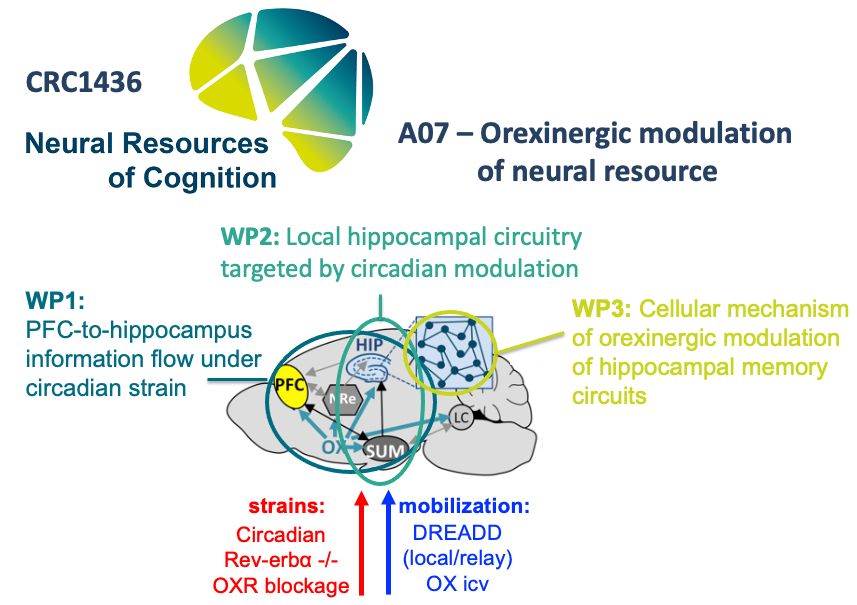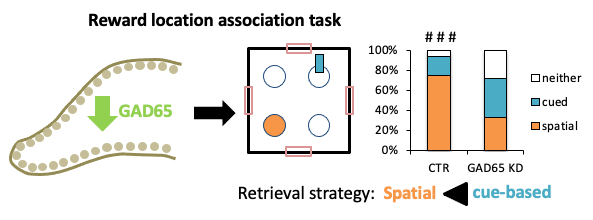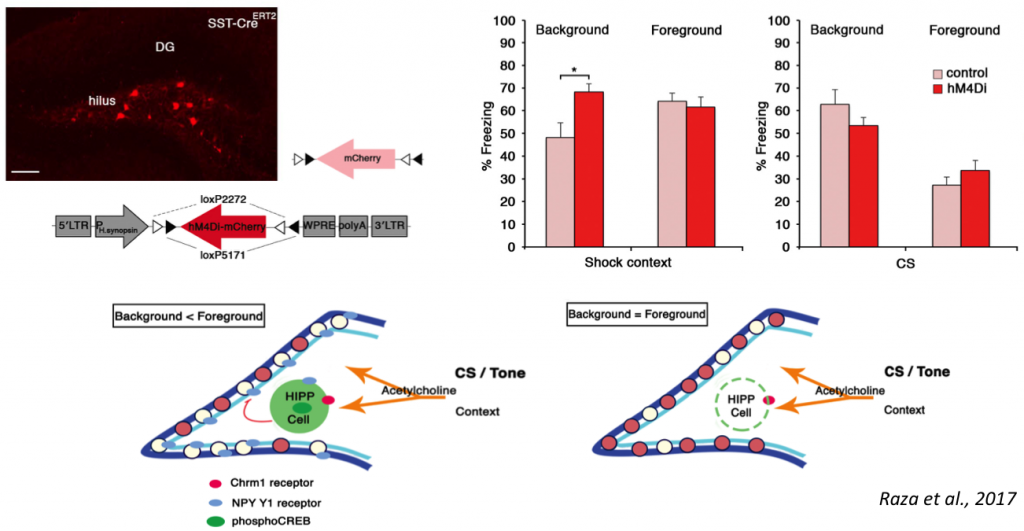RESEARCH – Hippocampal circuits in learning, memory and cognition
Orexinergic modulation of neural resource (CRC 1436 Jan 2021-Dec 2024)

In our new collaborative research unit project we will investigate together with Oliver Stork from the Institute of Biology how the neuropeptide orexin can be used to rescue cognitive performance under circadian disturbances. Orexin promotes wakefulness and is expressed in hypothalamic neurons that projects to brain areas important for cognition. We will analyze how can modulate these areas and their interaction, namely the prefrontal cortex (PFC) and the hippocampus, as well as to interface areas communicating with those structures like the supramammilary nucleus (SUM) or the nucleus reuniens (NRe). We will further investigate how orexin targets specific circuits within the dentate gyrus of the hippocampus and which cellular mechanisms are triggered by that peptide. Together with the great projects of the CRC 1436 neural resources, we can thereby built the basis to treat cognitive impairments beyond circadian disturbances, e.g. in aging and stress-induced disorders like depression.
Reward strategy choices under stress

Mice and men under stress tend to use a different strategy to retrieve information. For example, when trying to remember a nice place for food, you can efficiently use an internal map to navigate there. However, stressed individuals often fall back on an easier to achieve strategy by following signs or cues to get their goal. We investigate how stress alters circuits in the hippocampus to gear the system towards a cue-based strategy and found an interesting role for the GABA-synthetizing enzyme GAD65 within the dentate gyrus.
Hippocampal circuits of fear memory salience

Important for a successful adaptation to stress is also how we remember emotionally salient events. Fear condition thereby serves as a pivotal paradigm for studying the acquisition, consolidation and retrieval of emotional memories. How engrams, cellular representations of the memory trace, are formed and modulated is a currently intensively researched topic. Of special interest to us is here the modulation of engrams by previous experience (e.g. juvenile stress) and circadian factors (Albrecht & Stork et al., 2017). Moreover, we are investigating how inhibitory interneurons shape memory traces under those conditions (Raza, Albrecht et al., 2017).